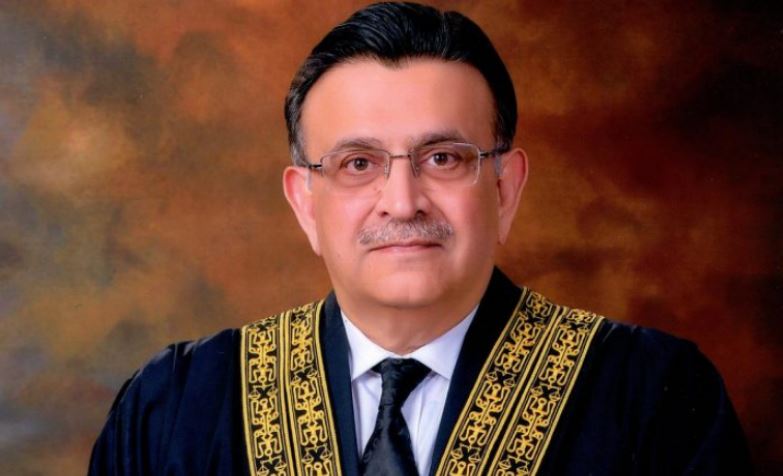Islamabad: The Supreme Court of Pakistan on Thursday dismissed a plea seeking to stop the long march of PTI’s Chairman Imran Khan and termed the petition as “infructuous”.
While presiding over a three-member bench, including Justice Athar Minallah and Justice Ayesha Malik, Chief Justice of Pakistan Umar Atta Bandial said: “Prima facie, the court’s interference on the issue would be premature […] court will exercise judicial restraint in such political matters.”
JUI-F Senator Kamran Murtaza had urged the court last week to stop the long march of PTI. The SC told him that he could file a fresh plea if the law and order situation worsens.
Senator Murtaza said: “Everyday life of people has been disrupted due to the long march. The PTI reserves its right to hold a long march, but in no way is it allowed to disturb a commoner’s life.”
At this, Justice Minallah asked Murtaza whether he thought that the administration had become so weak that it could not handle the long march. Justice Ayesha also asked the lawyer whether the government had introduced a mechanism to regulate the protests.
Justice Minallah told the senator that this was a matter related to the executive and that he should approach them. He asked: “When the administration has the authority to control the long march, why should the courts intervene?”
While answering, Murtaza said things have gotten out of hand now as, during the long march, Khan was severely injured, and a person lost their life in Wazirabad.
In his remarks, CJP Bandial said to Murtaza: “The long march is a political issue, there is a political solution to it as well.” He further stressed the point that it creates a difficult situation when the judiciary gets involved in political matters in the country.
CJP Bandial said that since the court was informed that the march was still in Punjab, then whether the petitioner had approached the province’s government. And if that is not the case, can the court intervene if the communication ties between the Centre and provinces are cut off?
Justice Minallah asked: “How can we believe that you are here in a personal capacity when you are also part of the government?” He further told him that he was a senator and should focus on strengthening the parliament.
The CJP further said prima facie, the court’s interference in the issue would be “premature”.
Then, Justice Minallah asked Murtaza whether he wanted the court to play the role of a deputy commissioner. He also noted that a similar case was already being heard in the Islamabad High Court (IHC).
“The court will interfere if there is a clear risk of a constitutional violation,” CJP remarked.
In his petition, JUI-F Senator Murtaza had claimed that the PTI chairman seems to be on a collision course with the institutions of Pakistan as the party is once again carrying out its “long march” to Islamabad.
Senator Murtaza had made federal and provincial governments his respondents, along with Khan and his party.
The petition had urged the supreme court to ensure the basic rights of Pakistani people were not violated during the long march. It further prayed to the top court to order the federal and provincial governments to ensure that Islamabad’s population was off-limits for the PTI’s protest/sit-in. It also appealed not to allow the long march to sit in for an indefinite period.








